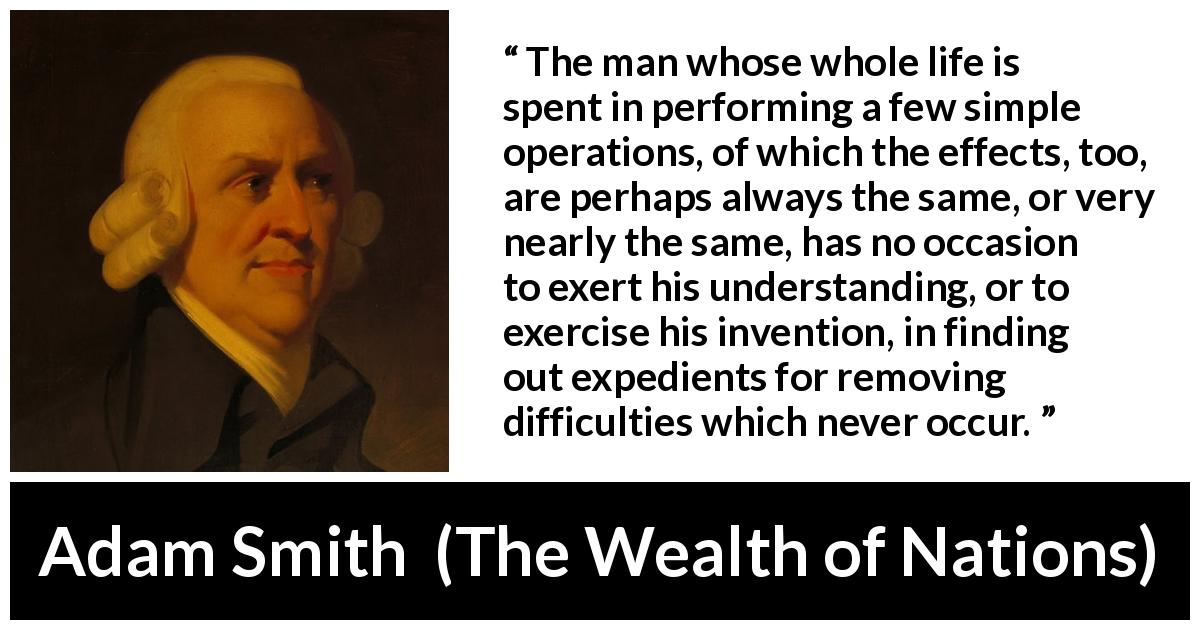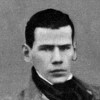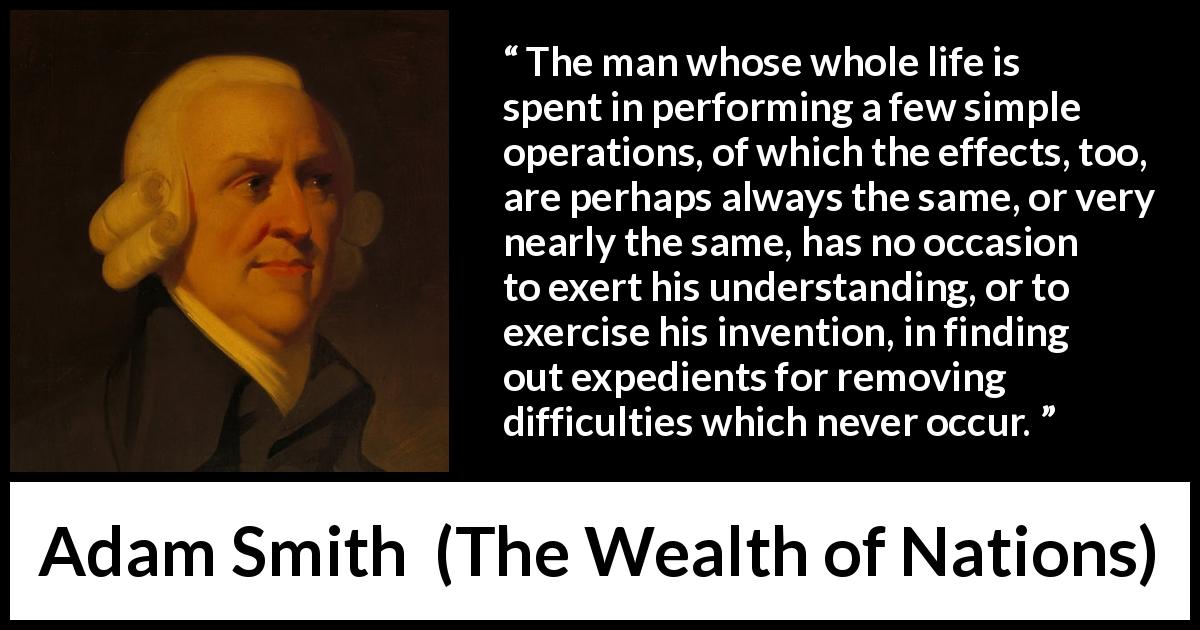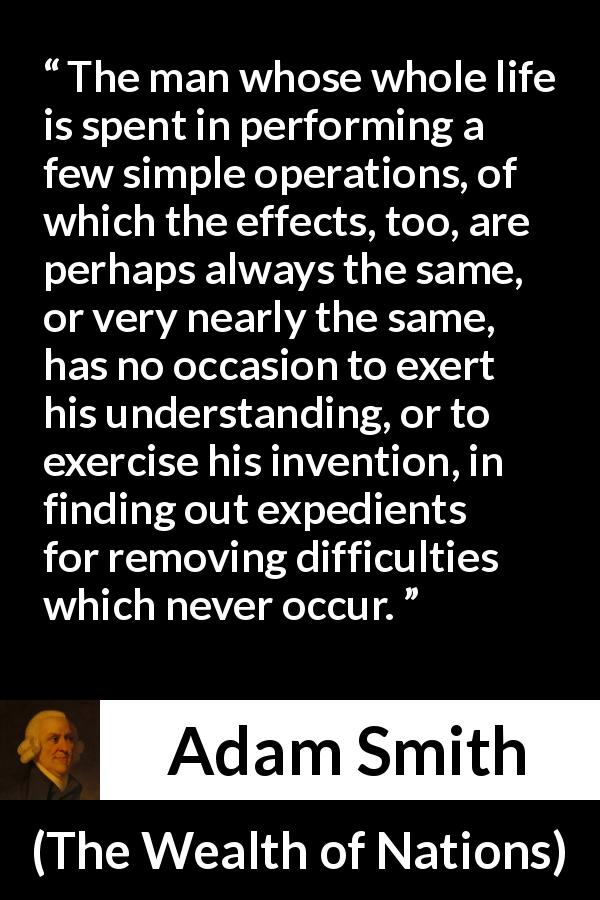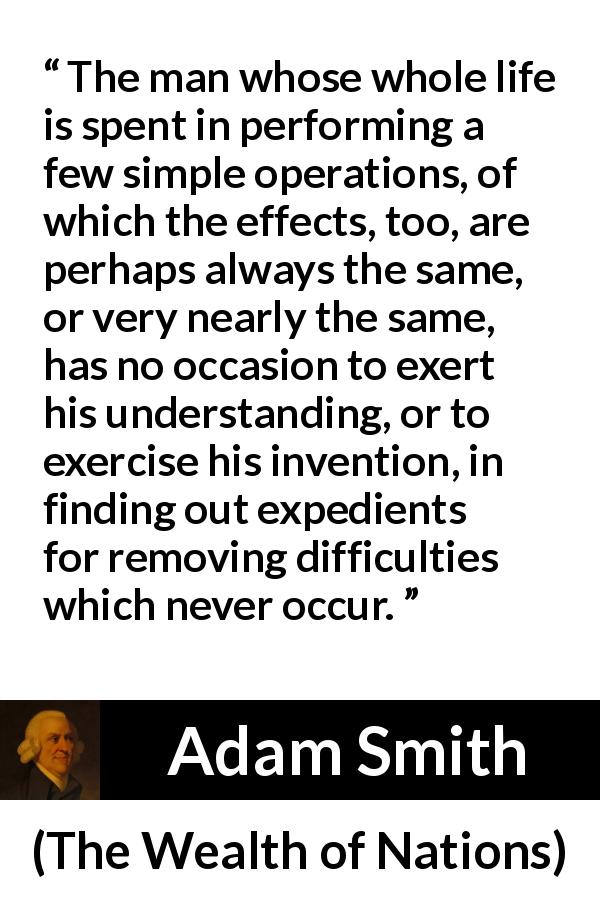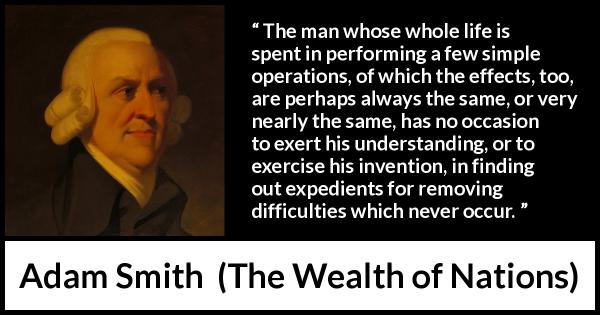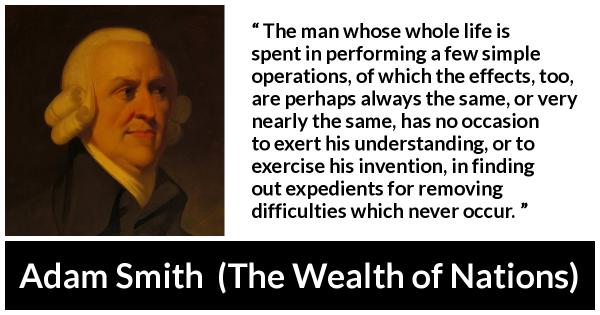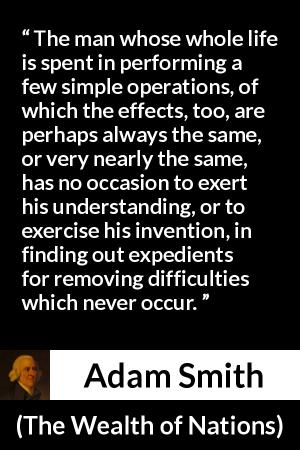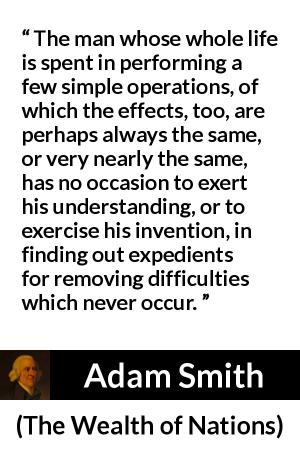“ The man whose whole life is spent in performing a few simple operations, of which the effects, too, are perhaps always the same, or very nearly the same, has no occasion to exert his understanding, or to exercise his invention, in finding out expedients for removing difficulties which never occur. ”
Adam Smith, The Wealth of Nations (1776). copy citation
| Author | Adam Smith |
|---|---|
| Source | The Wealth of Nations |
| Topic | understanding invention work difficulty |
| Date | 1776 |
| Language | English |
| Reference | An Inquiry into the Nature and Causes of the Wealth of Nations |
| Note | |
| Weblink | http://www.gutenberg.org/files/3300/3300-h/3300-h.htm |
Context
“In the progress of the division of labour, the employment of the far greater part of those who live by labour, that is, of the great body of the people, comes to be confined to a few very simple operations; frequently to one or two. But the understandings of the greater part of men are necessarily formed by their ordinary employments. The man whose whole life is spent in performing a few simple operations, of which the effects, too, are perhaps always the same, or very nearly the same, has no occasion to exert his understanding, or to exercise his invention, in finding out expedients for removing difficulties which never occur. He naturally loses, therefore, the habit of such exertion, and generally becomes as stupid and ignorant as it is possible for a human creature to become. The torpor of his mind renders him not only incapable of relishing or bearing a part in any rational conversation, but of conceiving any generous, noble, or tender sentiment, and consequently of forming any just judgment concerning many even of the ordinary duties of private life.”
source
